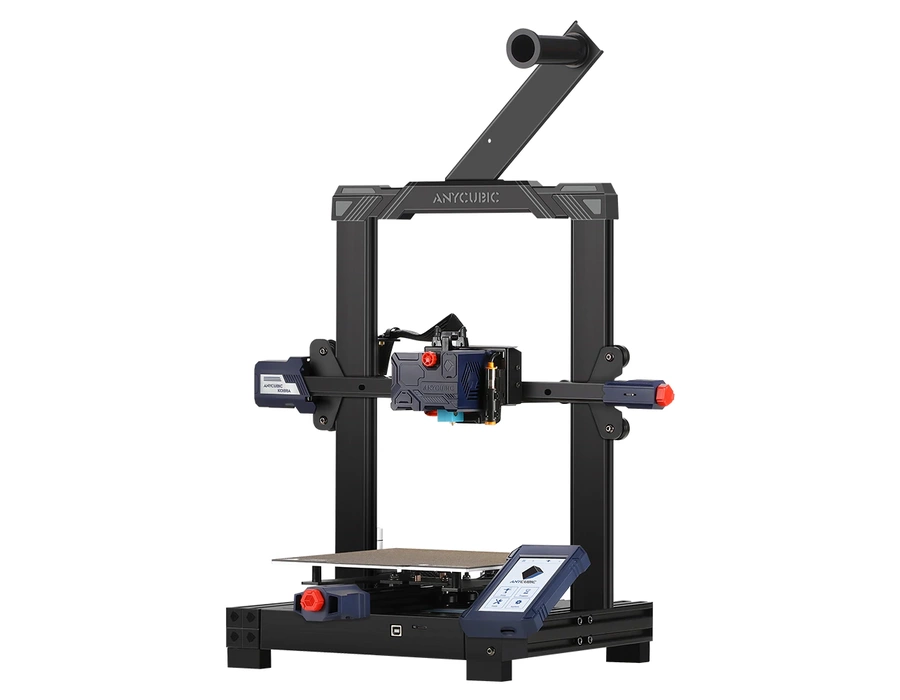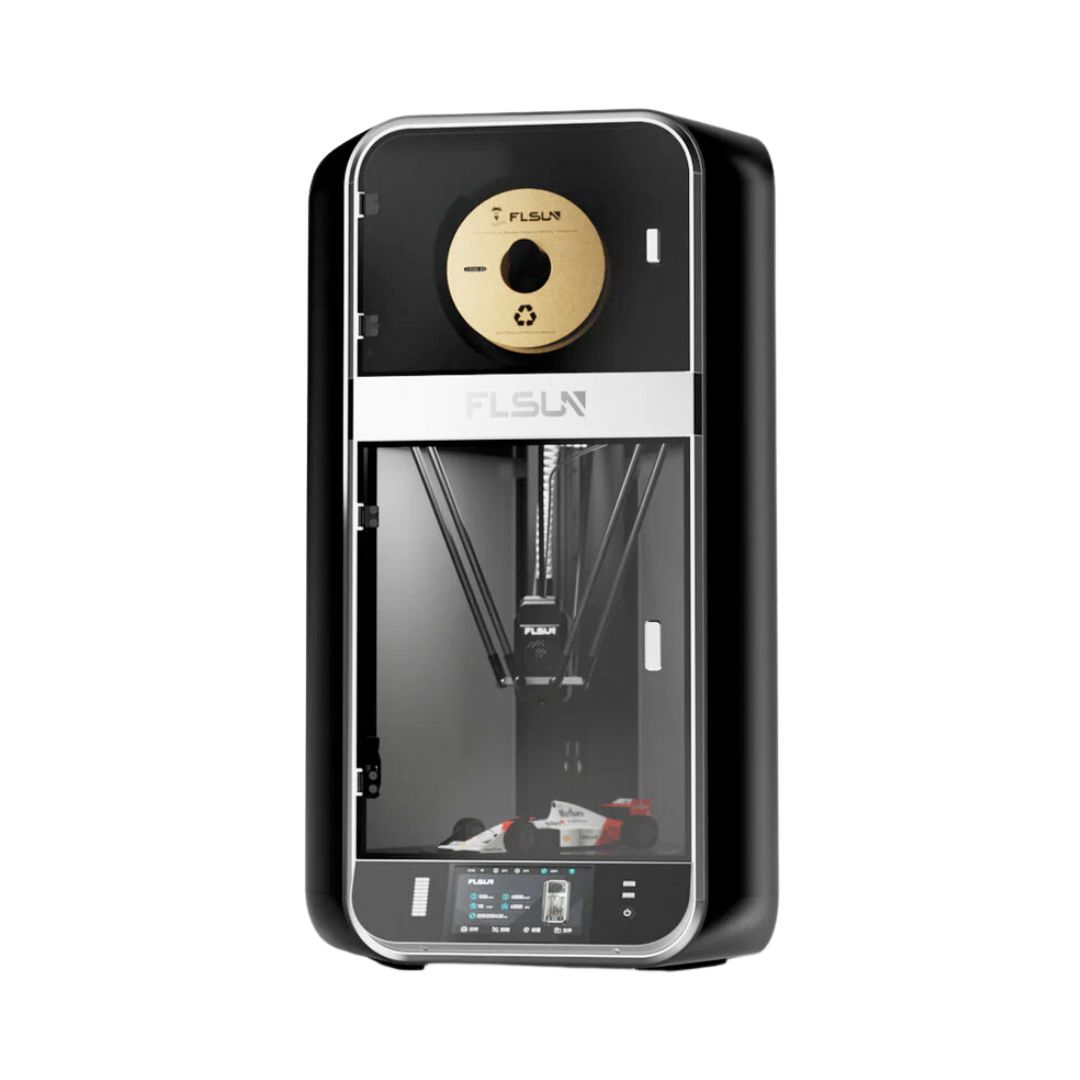Compare Kobra vs S1 PRO
Comparison between the best 3D printers
Choose the best 3D printer at the best price. The cheapest 3D printers are here.
Buy a 3D printer here with 3D Fila.
 |
 |
|
| Model | Kobra |
S1 PRO |
| Printing Material | Filament | Filament |
| Buy Filament for Anycubic Kobra | Buy Filament forFLSUN S1 PRO | |
| Estimated price | $259,00 | $1500,00 |
| Manufacturer | Anycubic | FLSUN |
| Release Year | 2022 | 2024 |
| Print Volume [mm] | 220x220x250 | 320x320x430 |
| Printer Size [mm] | 486x430x486 | 450x450x1200 |
| Weight [kg] | 7 | 41 |
| Power Loss Recovery | YES | YES |
| Enclosed printer | NO | YES |
| Bed Leveling | Automatic | Automatic |
| Filament End Sensor | NO | YES |
| Bed type | Heated | Heated |
| Power supply system | Direct Drive | Direct Drive |
| Standard nozzle | 0,4 | 0,4 |
| Maximum Nozzle Temperature [°C] | 260 | 350 |
| Maximum Bed Temperature [°C] | 110 | 120 |
| Maximum printing speed [mm/s] | 180 | 1200 |
| Filament holder | YES | YES |
| Camera for supervision | NO | NO |
| Recommended filaments | PLA, PETG, Tritan, Flex, ABS | PLA, PETG, TPU, ABS, ASA, Nylon, PC, PP, HIPS |
| Recommended slicers | Cura, Simplify, Slic3r, IdeaMaker | FLSun Slicer 2.0, Orca Slicer |
| Maximum Resolution [mm] | 0,1 | 0,01 |
| Processor | ||
| Display | Display touchscreen 4,3'' | Touchscreen 7'' |
| Power Supply | 110/220V / 400W | 500W 110-240V, 50/60HZ |
| Connectivity | SD / USB | Wi-Fi, USB, app FL Sun World |
| Operating systems | Windows, Mac, Linux | Windows, Mac |
| Date of registration in the system | 2022-11-09 | 2024-12-16 |
| Release date | 2022 | 2024 |
| Extra features | The Anycubic Kobra features automatic bed leveling and a direct extruder for easy filament handling. The print bed is coated with PEI on a flexible steel plate, improving adhesion and making prints easier to remove. The printer features sensorless homing and is designed to be easily disassembled for easy maintenance and customization. | The FLSUN S1 Pro is a high-speed Delta 3D printer, reaching up to 1200 mm/s with 40,000 mm/s² acceleration. It features a build volume of 320 mm (diameter) x 430 mm (height), a 350°C hotend, dual-zone heated bed up to 120°C, a 50°C heated chamber, and an active filament drying holder. It includes a camera for remote monitoring, integrated UPS for power-loss safety, a HEPA filter, and a 7 touchscreen interface. Perfect for large and complex projects. |
| Support for multiple colors and materials (AMS and CFS) | NO | NO |
Notes * |
||
| Cost-benefit | 7 / 10 | 7 / 10 |
| Hardware | 1.8 / 10 | 4.8 / 10 |
| Tela | . | . |
| Print volume | 3 / 10 | 4 / 10 |
| Performance | 1 / 10 | 9 / 10 |
Conclusion |
| In comparing the Anycubic Kobra and the FLSUN S1 Pro 3D printers, several key factors highlight their distinct advantages and disadvantages. The Anycubic Kobra offers a more budget-friendly option, making it an attractive choice for hobbyists and those who are entering the world of 3D printing. Its features, such as automatic bed leveling and direct drive extruder, combined with reasonable print volume and decent print quality capabilities, provide good value for casual users. However, its limitations in maximum printing speed and the absence of advanced features like a filament end sensor may make it less suitable for more demanding projects. Conversely, the FLSUN S1 Pro, while significantly more expensive, caters to advanced users seeking high performance and versatility. With its impressive print volume, rapid maximum printing speed, and the ability to handle a wider range of materials, it’s designed for larger and more complex printing tasks. Additionally, features like a heated chamber, high maximum nozzle temperature, and a sophisticated touchscreen interface enhance user experience and efficiency. Ultimately, the choice between these two printers hinges on the user's needs and budget. The Anycubic Kobra is ideal for those starting in 3D printing or looking for an affordable solution, while the FLSUN S1 Pro excels in performance and advanced functionality, justifying its higher price for professional or intensive use. Each printer carries its strengths, and the decision should reflect the specific demands and goals of the user. |

